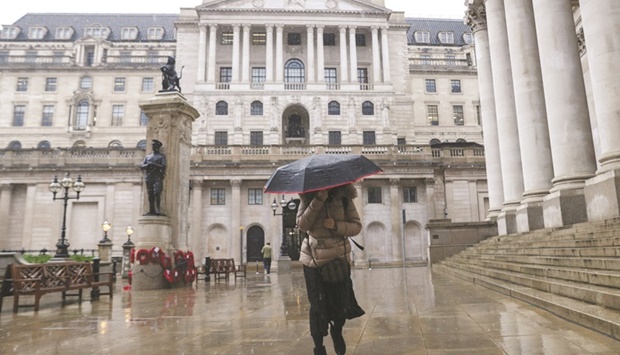The Bank of England (BoE) signalled it will move cautiously in selling off the £19bn ($22bn) of UK government bonds it snapped up in emergency action in recent weeks, outlining a “demand-led” approach to the sales.
The central bank said it intends to make the gilts available to interested buyers from November 29.
The sales “will commence not at a fixed pace, but will be designed in a demand-led way that is responsive to prevailing market conditions,” it said in a statement on Thursday.
The cautious approach is intended to prevent renewed dysfunction in the UK bond market, which remains fragile after a record rout exacerbated by forced selling of long maturities from pension funds that prompted the BoE to intervene. Still, UK bonds slipped on Friday with long-dated debt underperforming to pull back from a rally this week.
The central bank bought gilts between September 28 and October 14 to avoid what it called a “fire sale” that threatened financial stability. It stepped in as trading became disorderly amid a cascade of collateral calls facing pension funds. The turmoil followed Liz Truss’ economic plan during her short term as prime minister, which has been reversed by her successor, Rishi Sunak.
The bonds the BoE bought during the emergency intervention were long-maturities or linked to inflation, since those were favoured by the pension funds at the heart of the stress. Longer-dated UK bonds fell the most on Friday, with the gap between 30-year yields and 10-year yields widening by two basis points on the day.
The bonds subject to Thursday’s announcement were bought under the BoE’s financial-stability mandate and remain separate from its assets built up during a decade of quantitative easing, which the bank has recently started unloading every week.
The BoE said that it would allow buyers to express interest in purchasing the bonds held in the portfolio via the form of a so-called “reverse enquiry window.” The acceptance of bids would be based on demand and their attractiveness relative to market levels.
“This means that there will be instances when the Bank could sell a larger volume of bonds if demand is particularly strong; but also times when the Bank will sell few or no bonds if there is insufficient demand,” the BoE said in the statement.
The BoE said it would publish further operational details in a market notice in the week commencing November 21, and will hold a call with market makers next week.

A pedestrian walks past the Bank of England in the City of London. The BoE signalled it will move cautiously in selling off the $22bn of UK government bonds it snapped up in emergency action in recent weeks, outlining a u201cdemand-ledu201d approach to the sales.
